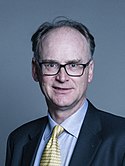Matt Ridley Quote
Perhaps the heritability of IQ implies something entirely different, something that once and for all proves that Galton’s attempt to discriminate between nature and nurture is misconceived. Consider this apparently fatuous fact. People with high IQ s, on average, have more symmetrical ears than people with low IQ s. Their whole bodies seem to be more symmetrical: foot breadth, ankle breadth, finger length, wrist breadth and elbow breadth each correlates with IQ. In the early 1990s there was revived an old interest in bodily symmetry, because of what it can reveal about the body’s development during early life. Some asymmetries in the body are consistent: the heart is on the left side of the chest, for example, in most people. But other, smaller asymmetries can go randomly in either direction. In some people the left ear is larger than the right; in others, vice versa. The magnitude of this so-called fluctuating asymmetry is a sensitive measure of how much stress the body was under when developing, stress from infections, toxins or poor nutrition. The fact that people with high IQs have more symmetrical bodies suggests that they were subject to fewer developmental stresses in the womb or in childhood. Or rather, that they were more resistant to such stresses. And the resistance may well be heritable. So the heritability of IQ might not be caused by direct ‘genes for intelligence’ at all, but by indirect genes for resistance to toxins or infections – genes in other words that work by interacting with the environment. You inherit not your IQ but your ability to develop a high IQ under certain environmental circumstances. How does one parcel that one into nature and nurture? It is frankly impossible.
Perhaps the heritability of IQ implies something entirely different, something that once and for all proves that Galton’s attempt to discriminate between nature and nurture is misconceived. Consider this apparently fatuous fact. People with high IQ s, on average, have more symmetrical ears than people with low IQ s. Their whole bodies seem to be more symmetrical: foot breadth, ankle breadth, finger length, wrist breadth and elbow breadth each correlates with IQ. In the early 1990s there was revived an old interest in bodily symmetry, because of what it can reveal about the body’s development during early life. Some asymmetries in the body are consistent: the heart is on the left side of the chest, for example, in most people. But other, smaller asymmetries can go randomly in either direction. In some people the left ear is larger than the right; in others, vice versa. The magnitude of this so-called fluctuating asymmetry is a sensitive measure of how much stress the body was under when developing, stress from infections, toxins or poor nutrition. The fact that people with high IQs have more symmetrical bodies suggests that they were subject to fewer developmental stresses in the womb or in childhood. Or rather, that they were more resistant to such stresses. And the resistance may well be heritable. So the heritability of IQ might not be caused by direct ‘genes for intelligence’ at all, but by indirect genes for resistance to toxins or infections – genes in other words that work by interacting with the environment. You inherit not your IQ but your ability to develop a high IQ under certain environmental circumstances. How does one parcel that one into nature and nurture? It is frankly impossible.
Related Quotes
About Matt Ridley
Ridley is a libertarian, and a staunch supporter of Brexit. He inherited the viscountcy in February 2012 and was a Conservative hereditary peer from February 2013, with an elected seat in the House of Lords, until his retirement in December 2021.
